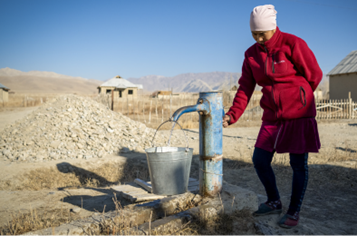Interview with Mila Bunker, MCPI on the effects of the typhoon on MFIs and their clients
- Dec 2, 2013
- 2 min read
During European Microfinance Week Bart De Bruyne took the opportunity to interview Mila Bunker, MCPI (Microfinance Council of the Philippines Inc)
Question: How are the population and your member MFIs affected by Typhoon Yolanda (Haiyan)?
Answer: In the aftermath of Typhoon Yolanda , our member-MFIs in the Visayas and other nearby provinces, their clients and staff found themselves in the middle of massive loss—in terms of lives, enterprises and properties. The magnitude of the destruction that the typhoon wrought to our members is overwhelming; they badly need assistance and extra funds in order to help their clients persevere in these very difficult times.
From an operational standpoint, MFIs have no other recourse but to become “flexible” and, at the same time, be more prudent in their lending policies, procedures and activities during the period of disaster—with due consideration to the welfare and well-being of their clients.
Question: What are your strategies to cope with the aftermath of the Typhoon?
Answer:
• Document/monitor the extent of damage (in terms of life, livelihood and property) of microfinance clients per respective areas of operation.
• Ascertain the specific needs and requirements of member-MFIs, in terms of financial/logistical resources for relief and rehabilitation.
• Dialogue with international partner organizations/donors/funders regarding potential areas of cooperation for purposes of disaster recovery/rehabilitation.
• Post-recovery: review the capacities and readiness of member-MFIs with respect to coping and responding to disasters.
• Develop a network-wide/network-level Disaster Reduction and Management Strategy, including resource mobilization for such purposes.
Question: How do you think that worldwide solidarity among MFIs can be organised to cope with such natural disasters? Answer: SPTF, SEEP Network, European Microfinance Platform and other international/regional microfinance networks and organizations should start concretizing plans/blueprints on how the microfinance sector—as a global community of development practitioners—can complement efforts of international humanitarian/relief agencies and organizations, with respect to disaster relief, rehabilitation, and recovery. Needless to say, we need to participate now in the discourse on Disaster Reduction and Management, especially on the aspect of disaster preparedness. It would also be good if we can develop and forge partnerships with other multilateral development finance institutions and come up with a model on how we can efficiently and transparently facilitate the flow of financial resources in times of massive humanitarian emergencies and disasters.
author: e-MFP





Comments